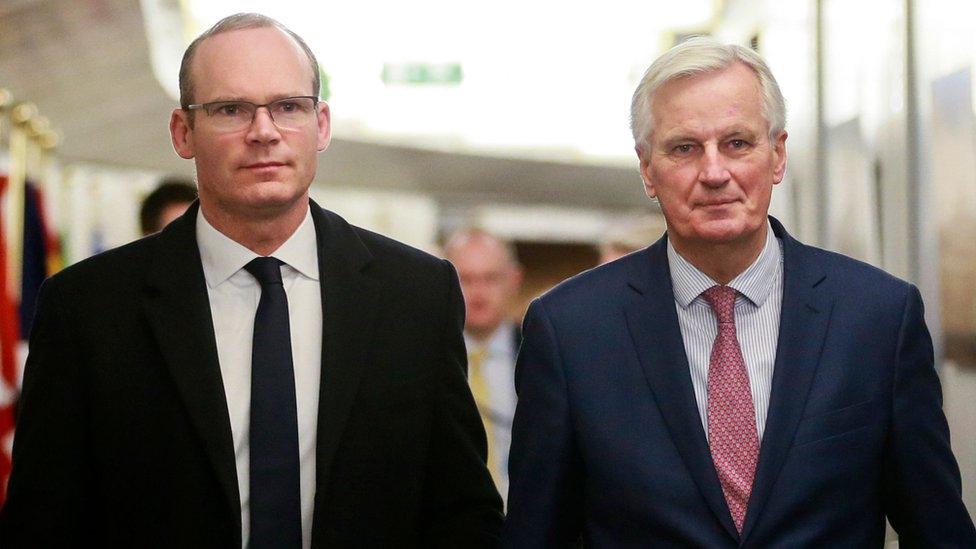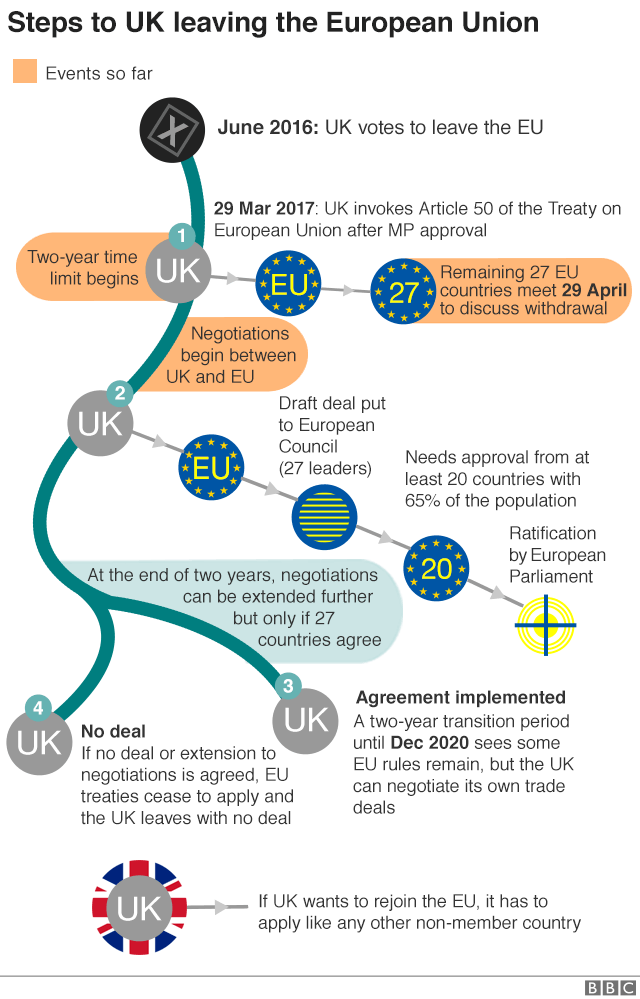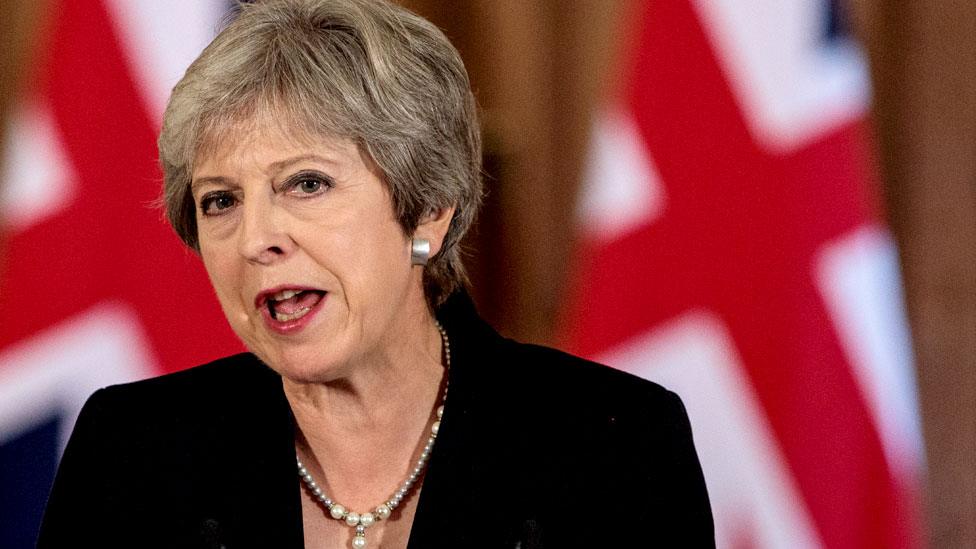Simon Coveney criticises DUP over Brexit backstop 'veto'
- Published

Simon Coveney and Michel Barnier have discussed negotiations on the draft Protocol on Ireland and Northern Ireland
The Irish foreign minister has criticised the DUP, saying no one party should be allowed to veto proposals on the Northern Ireland border issue.
Simon Coveney told RTÉ negotiations have turned into a unionist versus nationalist issue in Northern Ireland.
One of the main sticking points in negotiations is the Irish border.
Both sides agree they do not want a "hard border", such as customs posts or a network of surveillance cameras, but have not agreed how to achieve this.
On Friday, Prime Minister Theresa May said talks had reached an "impasse" and could only be unblocked with "serious engagement" from the EU side.
European Council President Donald Tusk said a "compromise" was possible but the UK proposals had to be "reworked".
Allow X content?
This article contains content provided by X. We ask for your permission before anything is loaded, as they may be using cookies and other technologies. You may want to read X’s cookie policy, external and privacy policy, external before accepting. To view this content choose ‘accept and continue’.
After the 2017 General Election, the DUP entered a confidence and supply arrangement with the Conservative Party at Westminster to give the government a Commons majority on certain issues, including Brexit.
The DUP has repeatedly said it would not accept any proposal that meant Northern Ireland would be treated differently to the rest of the United Kingdom.
'Fearful'
Speaking on the Marian Finucane programme, Mr Coveney said many people in Northern Ireland are "fearful".
"In many ways the backstop has turned into a green versus orange issue," he said.
"Parties in Northern Ireland have been put under real pressure mainly driven by fear.
"Unionists are fearful that a solution on this issue could result in barriers between Northern Ireland and the UK.
"Nationalists are fearful that they could see border infrastructure between where they live and where they regard as their country," he added.
He said Sinn Féin's comments around a border poll had spread fear among unionists.
What will become of the Irish border when the UK leaves the European Union?
Minister Coveney reiterated that "we need to get a deal" and if one was not reached, resulting in the UK crashing out of the EU it would be "bad news for everybody".
"We need a legal text on a withdrawal agreement," he said.
"There will be no withdrawal treaty between the UK and EU if there isn't a legally operable text on the Irish backstop guaranteeing no physical infrastructure.
"We will never sign a treaty that doesn't ensure the commitments given to Ireland aren't followed through," he added.
He acknowledged the DUP's role to play in supporting the UK government but said that Ireland and the EU does not have a "confidence and supply" agreement with any political party in Northern Ireland.
Minister Coveney emphasised that Ireland is not seeking to threaten or undermine the constitutional integrity of the UK.
He added that he trusted Mrs May will not, and is not, going back on the promises she made last December.
He called for an intensification of talks between the UK and the EU Brexit teams.
Responding to Mr Coveney's interview the DUP leader Arlene Foster tweeted that she wanted to see "a sensible exit from the EU" and said the referendum result must be implemented.
"The Conservative and Labour parties reject a border in the Irish Sea. Time for Brussels to respect the constitutional & economic integrity of UK," she added.

The UK is due to leave the EU on 29 March 2019.
- Published21 September 2018

- Published16 October 2019
